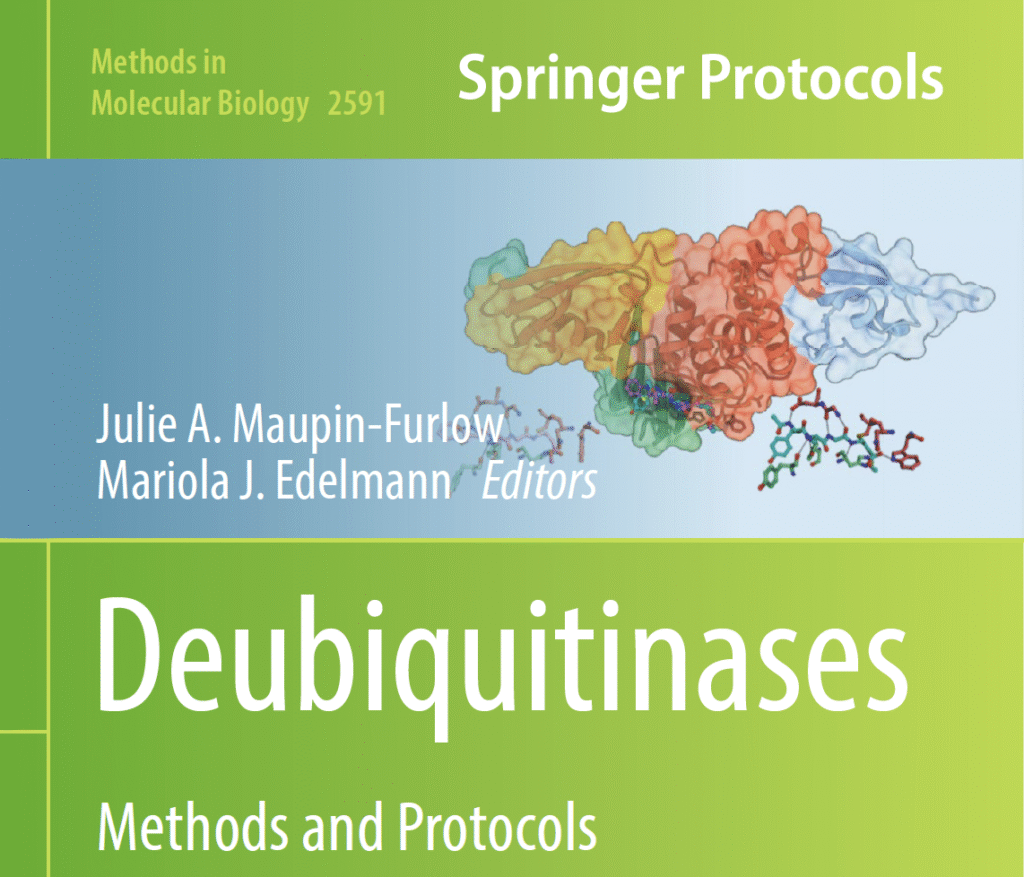news
Characterization of the Ubiquitin and ISG15 Deconjugase Activity of SARS-CoV-1 and SARS-CoV-2 Papain-Like Protease
UbiQ is proud to have contributed a chapter to the Methods in Molecular Biology book series (MIMB,volume 2591), together with scientists at the University of Texas Health Science Center (San Antonio, USA), and Wroclaw University of Science and Technology (Poland).
Abstract: Both severe acute respiratory syndrome coronavirus 1 and 2 (SARS-CoV-1 and SARS-CoV-2) encode a papain-like protease (PLpro), which plays a vital role in viral propagation. PLpro accomplishes this function by processing the viral polyproteins essential for viral replication and removing the small proteins, ubiquitin and ISG15 from the host’s key immune signaling proteins, thereby preventing the host’s innate immune response. Although PLpro from both SARS-CoV-1 and SARS-CoV-2 are structurally highly similar (83% sequence identity), they exhibit functional variability. Hence, to further elucidate the mechanism and aid in drug discovery efforts, the biochemical and kinetic characterization of PLpro is needed. This chapter describes step-by-step experimental procedures for evaluating PLpro activity in vitro using activity-based probes (ABPs) along with fluorescence-based substrates. Herein we describe a step-by-step experimental procedure to assess the activity of PLpro in vitro using a suite of activity-based probes (ABPs) and fluorescent substrates and how they can be applied as fast and yet sensitive methods to calculate kinetic parameters.


